The House Naming, Designating and Private Acts Committee is considering a resolution that suggests the removal of the Nathan Bedford Forrest bust from the state capitol and replacing it with an appropriate tribute to a deserving Tennessean.
Knoxville Democrat Representative Rick Staples brought House Joint Resolution HJR0686 before the 18-member committee, consisting of 13 Republicans and five Democrats and chaired by Representative John Mark Windle (D-Livingston) last Tuesday.
Resolutions are non-binding, but a copy of HJR0686 would be sent to the Capitol Commission to communicate the General Assembly’s suggestion to the commission’s members.
Introducing his resolution, Representative Staples told committee members, “It is my idea to move past conversations and ideas that divide us and give us opportunity to have conversation about what could bring us together.”
He offered the names of two Tennesseans to consider taking the place of the Nathan Bedford Forrest bust, which is detailed in his resolution.
Chairman Windle introduced Christy Allen, General Counsel from the Department of General Services and also General Counsel for the Capitol Commission.
Ms. Allen, in her overview, said that the Capitol Commission is generally charged with having oversight for the monuments and sculptures in the Capitol Building. In 2015, the Capitol Commission adopted a process for how future monuments and memorials would be considered for inclusion in the capitol.
The current process for removal is multi-step and begins with the Capitol Commission convening and voting to petition the Historical Commission for a waiver of the Tennessee Heritage Protection Act.
The Act, generally speaking, explained Ms. Allen, prohibits the removal or relocation of a monument honoring a historical figure unless the commission grants a waiver.
As committee members had questions regarding the definition of a monument, Chairman Windle advised that while he invited members of the Tennessee Historical Commission. For reasons he did not understand, Chairman Windle expressed disappointment that they declined to appear.
Less than 15 minutes into the discussion – in a meeting that went on to go for more than an hour – during a back-and-forth between committee members and General Counsel Allen, Representative Bo Mitchell (D-Nashville) questioned why they were taking so much time on this.
Chairman Windle, a Lieutenant Colonel in the Tennessee Army National Guard, responded, “There is a process that many men and women have fought to defend through the years and we’re following that process today.”
He went on to say to Representative Mitchell, “This is not to chastise you, but I have respect for this institution and the process and at the end of the day, I think the citizens of Tennessee, through their General Assembly, will come to the right conclusion. I certainly appreciate your comments, but I think it’s incumbent upon us to at least be respectful to our guests and hear them out before making a decision.”
With no further questions for Ms. Allen, Chairman Windle introduced the next presenter.
James Patterson, a native of Murfreesboro, is the current Commander of the Tennessee Division of the Sons of Confederate Veterans and has been a Civil War reenactor for the last 29 years.
He explained that all the branches of his family during the Civil War were Tennesseans who fought for the Confederate Army, none of whom were officers or slave owners, but defending their families and homes from an invading army.
As a Boy Scout, Patterson said they camped on the Stones River battlefield and learned about Forrest’s raid on Murfreesboro, when the citizens of the town were being held at the courthouse and were going to be executed by the Union army until Forrest came into town and freed them.
Patterson’s great, great grandfather – an 18-year-old illiterate boy defending his hometown – was a private at Fort McLemore’s Cavalry fighting under Forrest at the second battle at Fort Donelson.
Patterson discouraged passage of the resolution, saying that it seemed like an end-run around the Capitol Commission that has meetings scheduled to discuss the matter.
He went on to say that over the past years, on several occasions there has been disruptive and disrespectful behavior at the state capitol building. Patterson alluded to an incident involving then Speaker Glen Casada (R-Franklin) – who is the Vice-Chair of the committee and in attendance at the meeting – with the throwing of coffee on state legislators and trying to push their way into legislator’s offices.
Patterson said the activities make a mockery of the state of Tennessee and that moving the Nathan Bedford Forrest bust rewards them and their bad behavior.
Another group Patterson said is attacking our history is antifa, who hides behind masks and throws paint on monuments. He said that is another reason to vote against the resolution, otherwise “you’re approving their bad behavior.”
Patterson relayed that two weeks ago, the Murfreesboro antifa group “doxxed” him and three other members of the Sons of Confederate Veterans.
Through an exchange initiated by Representative Mike Sparks (R-Smyrna), the two discussed Dr. George Smith, an African-American doctor from Murfreesboro.
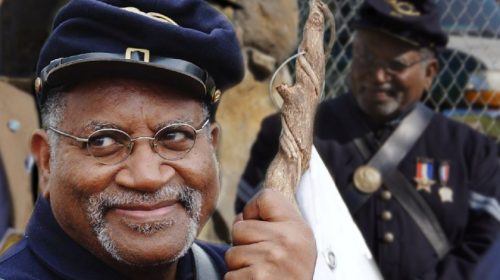
Dr. Smith, who passed away about two years ago, was also a Civil War reenactor.
Patterson said, gesturing with his hands in an inclusive manner, that all the reenacting groups – the U.S. Colored Troops and Union Troops – worked together “because we all understand what history is and how important it is to appreciate each other’s history, not try to destroy each other, but to appreciate each other and come together.”
Representative Sparks brought out that Dr. Smith was on the board of the Sam Davis Memorial Association with Patterson and even served as president.
Representative Mitchell asked Patterson if any Tennessean that committed war crimes should be honored.
Patterson responded that no Tennesseans and just one Confederate soldier was convicted of war crimes and that was Henry Wirz who was over Andersonville Prison.
Representative Mitchell challenged Patterson further, “Do you think that we should honor anyone who raised arms up against the United States of America, where we live?”
Patterson responded that Tennesseans voted to secede, which was something that they saw as part of the Constitution.
“These men had been raised by the men who fought in the Revolutionary War, who thought their rights had been threatened and stood up against the British,” explained Patterson, “so they were just doing what their forefathers had done before them.”
Patterson told Representative Mitchell that it was only after the war that the courts ruled secession was illegal.
After the exchange, Chairman Windle recognized Civil War expert and author Dr. Michael Bradley, who earned his Ph.D. in history at Vanderbilt and taught history for 36 years at Motlow College.
He encouraged applying the standard, professional practices of history, which depends on evidence and proof. After detailing how it is similar to being an attorney at law, Dr. Bradley said that it is not necessary to prove innocence, rather guilt must be established.
Dr. Bradley sought to address four allegations about Nathan Bedford Forrest: That he was a slave trader; he abused slaves, particularly as he traded them; his role in the Fort Pillow Massacre; and his leadership of the KKK (Ku Klux Klan).
There is “sound evidence” that Forrest was a slave trader, said Dr. Bradley. He then pointed out that, while being abhorrent today, the activity was both legal and acceptable for the 19th century.
He explained, “We have changed our moral standards over the last 150 years. There are many things we now accept as proper and acceptable which would have been rejected then; and many things which were rejected then, which are acceptable now.”
“A historian always proceeds on the basis that an individual must be judged by the standards of the time in which they lived, not the standards of today. If you judge the past by today, the past is always going to be wrong.”
As for the second issue, the claims that Forrest abused of slaves were not substantiated and were printed in newspapers sympathetic to the war effort, the support for which was waning at the time.
Dr. Bradley said it wouldn’t make business sense to physically abuse slaves. In addition, allegations of Forrest’s brother’s assistance with the abuse seems unlikely given his physical disabilities resulting from an accident that left him needing assistance to rise from a chair and unable to walk without the aid of crutches.
The third accusation was of Forrest’s ordering of the massacre of hundreds of African-American soldiers at Fort Pillow after they surrendered. Dr. Bradley said no reputable historian denies that some people were killed in violation of the rules of war at Fort Pillow.
He went on to explain details that raise questions about how many were killed, when they were killed and who was responsible.
On that issue, Dr. Bradley concluded that no U.S. military authority brought charges against Forrest or the second in command, then or later.
The most revealing information from Dr. Bradley was related to Forrest’s role with the KKK, an accusation made in nearly every internet search of his name.
Dr. Bradley reminded that no one has ever produced evidence from a primary source – from 1866 when the Ku Klux Klan was founded all the way until 2020 – that this is the case.
He added that after the Civil War, the U.S. Congress set up a special joint committee “to crush the Ku Klux Klan” and indicted 9,000 people to that end.
After two days of testimony by Nathan Bedford Forrest in 1871, the committee ruled that “not only did Forrest have no connection with the Klan, they congratulated him on using his influence to suppress the Klan.”
After citing his congressional references, Dr. Bradley went on to conclude, “There is no proof then that Forrest was leader of the Klan or even a member of the Klan. There is documentary evidence that he was not.”
Representative Mitchell made his feelings clear that the bust of Democrat and Confederate General Nathan Bedford Forrest should be removed.
Fellow Democratic committee members Representatives Bill Beck (D-Nashville), John Ray Clemmons (D-Nashville) and Jason Hodges (D-Clarksville) weren’t as blunt as Mitchell, but challenged the two historians in various ways.
Speaker Pro Tem Bill Dunn (R-Knoxville) – the longest-serving Republican set to retire after this session – seemed to favor having a separate place for honoring Tennessee military persons and using the Capitol building for honoring elected officials.
Representative Bruce Griffey (R-Paris) offered to his fellow committee members that the Nathan Bedford Forrest State Park is in his district and that there are a number of individuals who are interested in having the bust located there as an additional attraction, qualifying that he wasn’t saying he is either for or against that option.
Representative Susan Lynn (R-Mt. Juliet), saying she likes to get to the root information, was interested in getting additional information from General Counsel Allen on the placement of the bust, such as the year, the sponsorship, who voted for and against it and the party lines of the votes.
Representative Mike Sparks (R-Smyrna), early in the meeting, said two quotes come to mind: One by Edmond Burke, “ones who don’t know their history are destined to repeat it and the other is by Dr. King that said we’re not makers of history, but we’re made by history.”
With a strong interest in history himself, Representative Sparks not only referred to other related historical figures and events, he expressed concern that there would be future calls to remove other memorials such as that of Andrew Jackson and Sam “Boy Hero” Davis.
Representative Glen Casada (R-Franklin) said that, speaking for himself, he would like to see the busts rotated.
“There’s been many great Tennesseans since 1865,” said Casada. As such, he has an amendment that expands what Representative Sparks is asking for.
As is customary, the resolution sponsor was recognized by the chairman for his closing before the vote or any other action was taken.
Representative Staples made a passionate appeal, “It is serendipitous and a beautiful thing that after such hearty, I dare say and I’m comfortable with saying controversial debate, that a child, a descendant of slavery is now speaking.”
An individual who was not thought to be here to address you today, I walk across that hallowed threshold of our General Assembly floor for the House. A descendant of slaves has come before you today to speak and move past the rhetoric that has been controversial and even divisive.
I looked at the faces of my friends and colleagues with angst and anguish at some of these things discussed. The same angst, anguish, pain and controversy that we’ve seen in the halls of the second floor dealing with a specific bust.
Right now, Tennesseans are seeing us fight, be divisive and debate.
I’m saying to you today, this is not who we are. I know you. You know me. We laugh, we talk and oftentimes we make fun of one another. We know each other’s families. We know each other to be respectful and intelligent men and women that serve in the 111th General Assembly.
This is what I know, for what my parents taught me is that truth is the medicine to heal all divides.
Here’s the truth. No one has said that Nathan Bedford Forrest’s history should be hidden, stripped away, pushed away, and never talked about. That’s the truth.
It’s truth that Ann Davis was a state representative for this magnificent state and did a great thing of service by giving us the Great Smoky Mountains. She deserves consideration to have a bust, based off of her work.
Here’s a truth. Another descendant to survive slavery, William F. Yarley, made a run for governor and it was serious and he did a great job and because of him today the truth remains that he has a path that has given me an opportunity to be before this committee.
Truth, ladies and gentlemen, is the medicine that heals all divides.
So, here’s the truth of this resolution. It’s just a suggestion to this great body, if the 111th General Assembly will allow for this resolution to go before the Capitol Commission to read, consider the removal of Nathan Bedford Forrest and the controversy that comes along with it and think about allowing for a state representative to lie in memoriam with a bust, to allow for an African-American that blazed a path to be remembered with a bust.
Don’t they deserve to be considered?
Don’t we deserve to learn more and talk more and be eloquent about their fantastic history and what they did to shape this great state?
I wanted to make that point Mr. Chairman and committee members. I will not belabor the point because you have been through a lot thus far with these piece of legislation, with this resolution.
Representative Staples concluded that he would roll the resolution for a week to review various options for the bust and then come back to serious discussion about presenting a consideration to the Capitol Commission.
Chairman Windle then took several minutes to make every accommodation to ensure that rolling the resolution a week wouldn’t count towards the total number of rolls allowed by a sponsor.
No action was taken on the resolution, but it was rolled until the next meeting of the committee scheduled for Tuesday, February 4 at 1:30 p.m.
The video of the January 28 meeting of the Naming, Designation and Public Acts Committee can be watched here.
—
Laura Baigert is a senior reporter at The Tennessee Star.

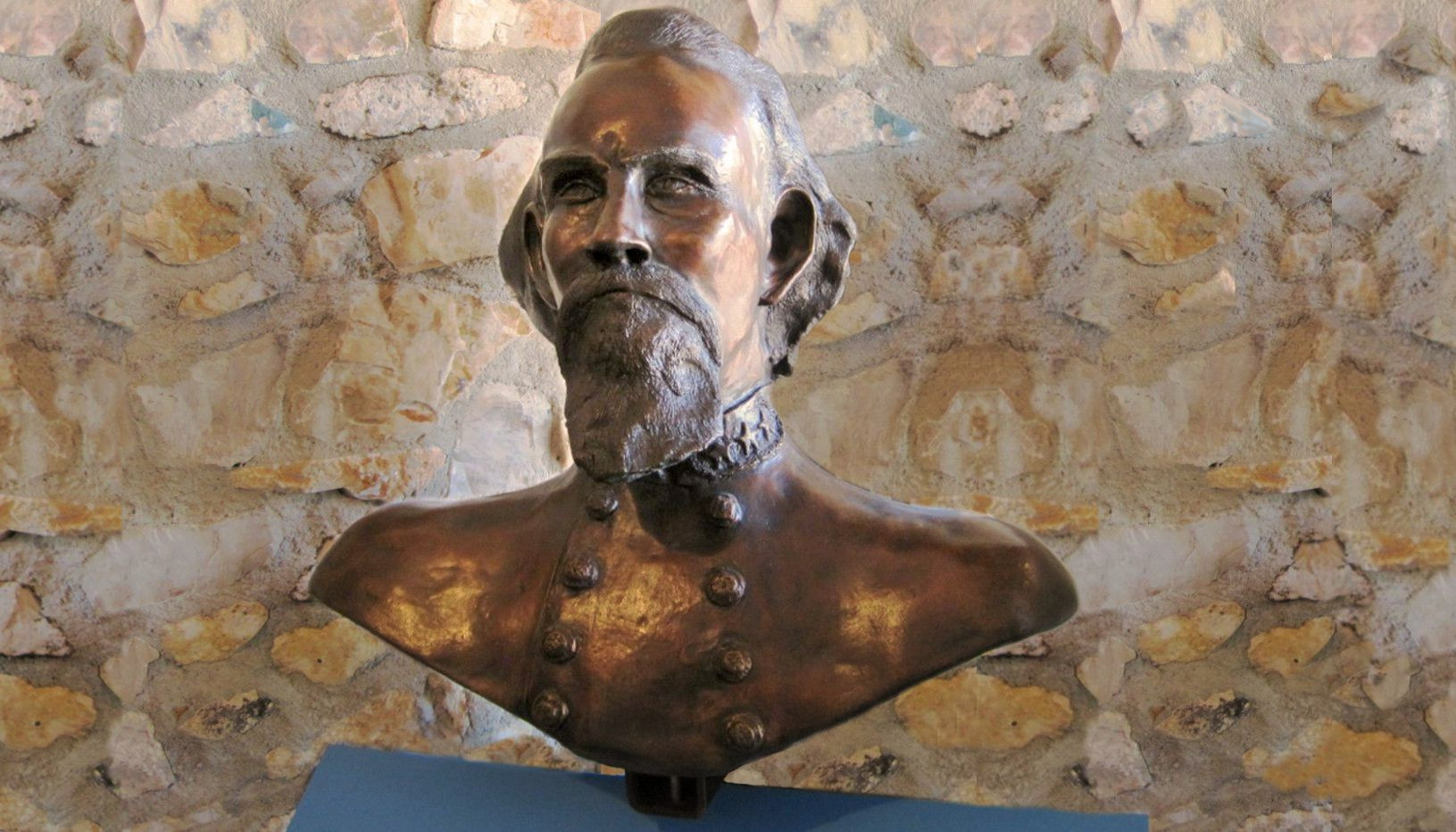
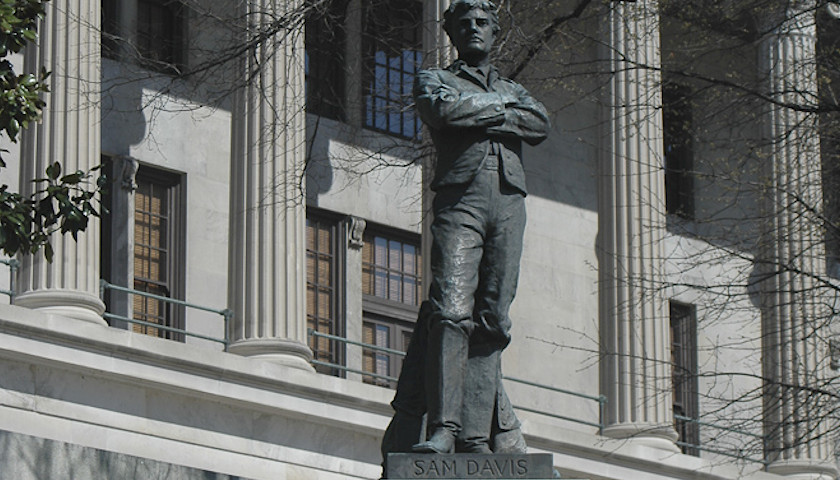

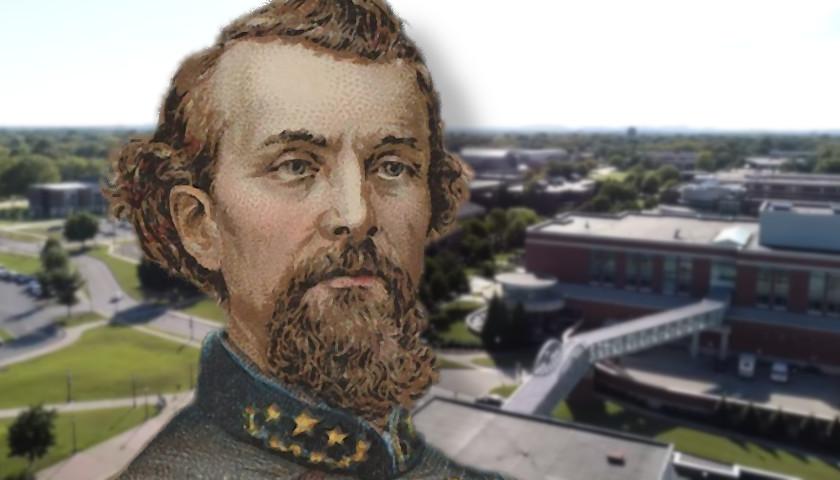
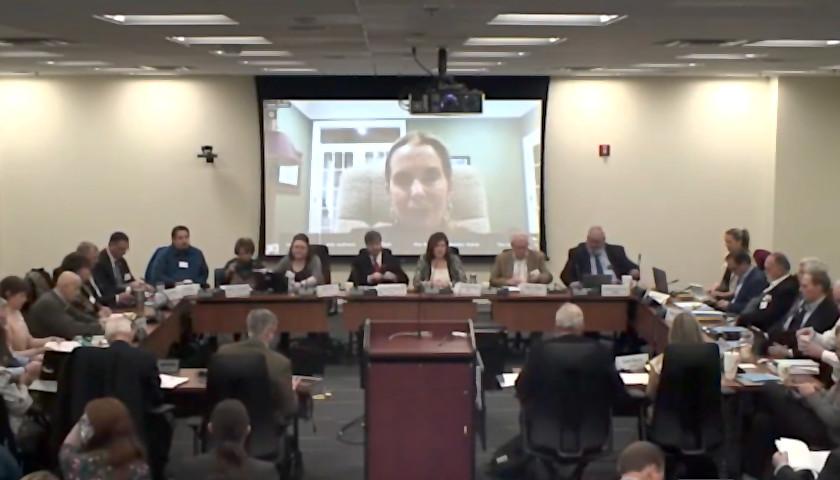
[…] to testimony heard the week prior from two historians, as The Tennessee Star reported, Representative Mitchell said, “Last week, we had to listen to a re-creation of fictional […]
These people have nothing better to do?